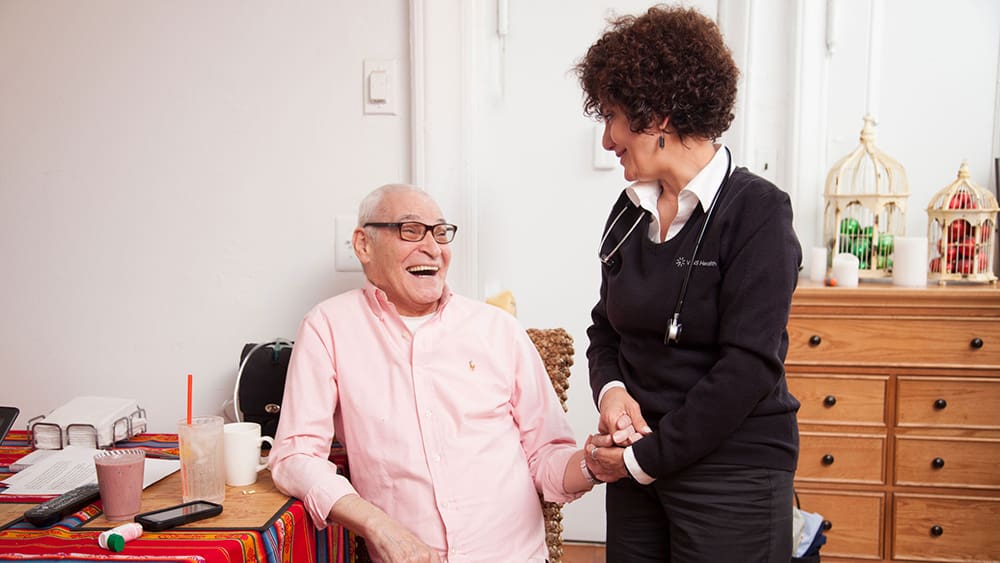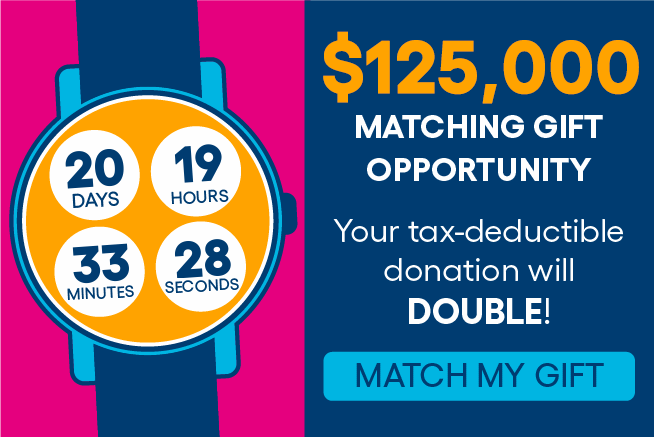
Hospice care can improve quality of life for patients with end-stage dementia or Alzheimer’s disease, and for their families and caregivers. The signs of hospice readiness in dementia can be challenging to identify, leaving many eligible patients without the benefits of hospice care.
VNS Health can help you determine when your patient is ready, so they can benefit from our range of services and support.
Hospice Can Help Your Patients with Dementia
When patients with dementia are referred to hospice care as soon as they are eligible, those patients and their caregivers both experience multiple benefits, including:
- Better pain management, fewer hospitalizations. Patients who are referred to hospice care are less likely to be hospitalized in their last 30 days of life, and more likely to receive regular treatment for daily pain.
- Enhanced patient experience. Hospice enrollment of dementia patients correlates with a higher perceived quality of care compared to those outside of hospice.1
- Caregiver benefits. Hospice extends invaluable support to family members and caregivers, who experience reduced prolonged grief and other emotional distress than their non-hospice counterparts.2
At VNS Health, we offer the benefits of hospice care for patients with dementia using the same interdisciplinary team approach — with doctors and nurses, specialists, home health aides, and counselors — that guides our care for all hospice patients.
We offer:
- Holistic care, with personalized, compassionate support as ADLs decline
- Symptom management, safe, simple medication regimens to help keep patients comfortable
- Personal care, such as bathing, using the bathroom, and preparing food
- Caregiver support, including family education and emotional, spiritual, and psychosocial support
- 24/7 access, with support and crisis management from a hospice nurse through VNS Health’s caregiver hotline
In 2023, nearly one-third of our hospice admissions were patients with end-stage neurological diseases
When to Refer a Patient
If a patient with an advancing neurological disease experiences a decline in normal activities of daily living, ambulation, or the ability to recognize caregivers, they may be ready for hospice care.
We use certain assessment tools, including the Functional Assessment Staging Tool (FAST) to determine when a patient with dementia is eligible for hospice care. Typically, patients in stage 7 — who experience signs such as loss of intelligible speech, incontinence, failure to recognize loved ones, and swallowing problems — are considered terminal and hospice-eligible.
| Functional Assessment Scale Tool (FAST), Stage 7 | |
|---|---|
|
|
Refer Your Patient to VNS Health Hospice Care
We look forward to partnering with you to keep patients with end-stage dementia or Alzheimer’s disease safe and comfortable at the end of life.
Physicians, physician assistants, and nurse practitioners can submit referrals via our e-referral form, phone, or fax.
The Value of Hospice Care
Learn more about the benefits of timely hospice referral for your patients with dementia.
Learn moreOther Options for Dementia Care
Not hospice-ready? Your patient may be eligible for Dementia Care at Home instead.
Learn more1 University of Chicago’s National Opinion Research Center
2 Harrison K, et al. Hospice Improves Care Quality For Older Adults With Dementia In Their Last Month Of Life. Health Aff (Millwood). 2022;41(6):821-830. doi: 10.1377/hlthaff.2021.01985
